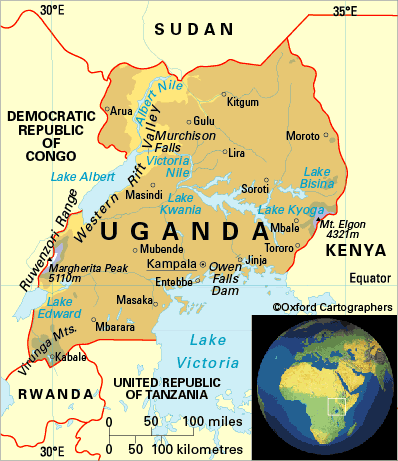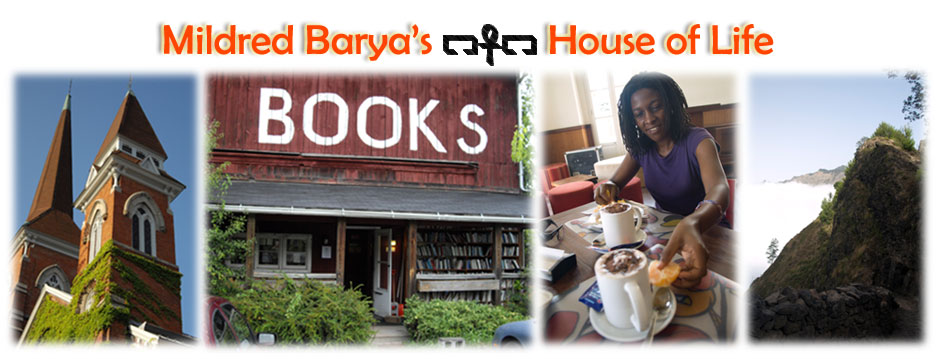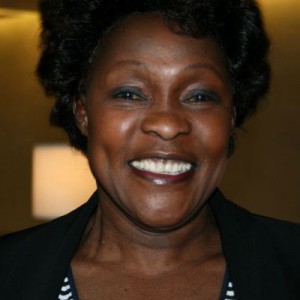With all the questions and buzz around me about Kony 2012, I can’t help but add my say. And am going to offend some people, I know, but can’t help it.
 This is one of those moments when I can claim my Ugandaness in full–as if it is contested! Just to show my perspective. And here I’ll add a disclaimer and say this may not be the view of all Ugandans. Am glad if some folks can partake in it, but it really is my individual analysis. That’s all am standing on. So yes, I’ve watched the 30 mins documentary that’s garnered 50 million hits/views. That is amazing. We are angry–Ugandans and other Black folks–because the man behind it–Jason Russell, White–reminds us of the terrible narrative in which the west attempts to save Africa without acknowledging the local people’s efforts and initiatives. The documentary is also simplistic but not bad enough. Russell has left out some important facts–mainly what the locals have been doing for the last 20 years to end the Northern Uganda bloody war. But can we step outside ourselves a little and say perhaps that’s not his story to tell after all. That is our story to tell? He’s only doing what he can from his perspective. With just a few editorial tweaks that documentary will be fine. And if we so very much want to correct the facts, why can’t we? Why should it be him to tell it the way we want the story to be told?
This is one of those moments when I can claim my Ugandaness in full–as if it is contested! Just to show my perspective. And here I’ll add a disclaimer and say this may not be the view of all Ugandans. Am glad if some folks can partake in it, but it really is my individual analysis. That’s all am standing on. So yes, I’ve watched the 30 mins documentary that’s garnered 50 million hits/views. That is amazing. We are angry–Ugandans and other Black folks–because the man behind it–Jason Russell, White–reminds us of the terrible narrative in which the west attempts to save Africa without acknowledging the local people’s efforts and initiatives. The documentary is also simplistic but not bad enough. Russell has left out some important facts–mainly what the locals have been doing for the last 20 years to end the Northern Uganda bloody war. But can we step outside ourselves a little and say perhaps that’s not his story to tell after all. That is our story to tell? He’s only doing what he can from his perspective. With just a few editorial tweaks that documentary will be fine. And if we so very much want to correct the facts, why can’t we? Why should it be him to tell it the way we want the story to be told?
Before you get me wrong since I’m writing from the margin, I know there are Ugandans who have been involved in trying to end the Kony war. I know journalists–me included once upon a time–tried our best to write about what was going on hoping we could change the situation through our pens, our media campaigns and what not. We never got 50 million hits, not even 1 perhaps, but we tried. Most of our politicians and policy makers were busy benefiting from what was going on, and I remember President Yoweri Museveni appearing on the TV when Kony was gaining momentum and saying: ‘Kony is just a jigger in the foot. We will stamp him out of Northern Uganda.’ That jigger grew and worsted itself five years, ten years, twenty years…where was the president then? What was the Ugandan Army doing all that time? This is an army that prides itself in training from Sandhurst, Cuba, Russia, US…and I’m told it really is a competent army. If it needed to catch Kony it would have caught him a long time ago, but it didn’t. Instead, Kony abducted, maimed, raped and killed women, and indoctrinated the children to take up guns and kill. Wanton massacres. The newspapers printed the horrific images until we screamed no. We do not want to see them.
Today, there isn’t active fighting in Uganda especially since Southern Sudan became liberated. Kony spilled into the Central African Republic and some parts of Congo where he continues to wreck havoc on the ordinary people. He was our responsibility as Ugandans and look what we’ve done. I do not understand therefore why some Ugandans are suggesting that since Kony is no longer in Northern Ugandan, he is no longer Uganda’s problem. I do not understand why they’re angry that the Invisible Children documentary used night commuters–who are no longer night commuting–as a continuing Kony problem. I would like to ask: Where are these children? Who is taking care of them? Are they in school? Are they being provided for? Those who have been maimed and raped, how many of them are being rehabilitated? How many have access to the necessary plastic surgery to try and restore their beautiful images that are now defaced? If we cannot answer these questions, or if we realize that the effects of Kony’s war on the children haven’t been sufficiently addressed, then we have no right to say we are doing our best to solve our own problems. And when do we accept failure? When do we accept help?
We get consumed with ‘saving Africa,’ and how we Ugandans are in fact trying to save Uganda…bullshit. There’s no ‘saving’ but there is helping. There is service. There is duty, commitment, and there is responsibility. Not the same thing as saving. The moment you have it in your head that you’re involved in saving a country, a continent, when perhaps you’re the one who needs saving, you run the risk of believing delusions. This is what I know: When I cry for help, I do not care whether that help comes in form of my mother, my friends, ants, goats, trees, Whites, Blacks, Yellows, Browns, stones…the whole spectrum. I only care that I’ve cried out and I’ve been heard. That someone appears to help. Back to the affected children and people, they’ve been calling for help and some of us heard and helped the best way we could, but not enough. I don’t care if the boy, Jacob, in the documentary, asked Russell to remember him and help those still in suffering. I’m happy that he did. In fact, if we ask the kids in Northern Uganda who have escaped from Kony what they think of the documentary, I’m 100% sure that they will embrace it and say it’s what they’ve been waiting for. They’ll realize that maybe they’re not alone after all. That maybe the ‘world’ might help. There are still hundreds of them–if not thousands–in captivity in the jungle. Even if there were only two kids under Kony’s grip, the documentary would still matter. Let’s not get into the danger of numbers. Human life is precious. My only fear is to create false hope, but cynicism aside, most other things that some of us are worried about–like getting the facts right–won’t matter to these kids because they’ve been through hell and they know help is all that they need.
Therefore, whose opinion should we consider? The kids who are still trying to cope and understand what happened to them, the people who want to feel safe that Kony won’t show up again, or a few privileged Ugandans with permanent internet connection, who can watch the documentary and pass it on to their friends asking for opinions, most of them living in the US, in Europe, and in safe African countries away from the conflict territories? Should we trust the views of the pot-bellied politicians and the government officials belching after sumptuous meals, rubbing their full tummies and releasing a statement demanding that facts be made right? At least the Invisible Children Initiative has a budget, a plan, and a sense of direction, whether it works out or not. Which Ugandan official or Ministry has ever said; Look, this is our budget, this is what we are going to spend trying to catch that bastard Kony? Which Ministry can say, Here, we got this money to resettle all those in refugee camps. We’ve restored their land and we are providing some education…
I don’t like the name Invisible Children. They are not invisible. They are people who need to be assured of their dignity and integrity. I think it destroys their self-esteem to call them invisible. I don’t like the part in the documentary where Russell shows his young son a picture of Kony and says this is the bad guy. I would have preferred him to have images of Hitler, Gaddafi, Bin Laden, and any other well known bad guys so the child can know evil exists in many faces and colors, not just black. I was imagining this kid standing on the street and seeing a black guy approaching and the kid running, screaming the bad guy is here because the only bad guy shown to him happens to be a black man. But I still think the documentary isn’t bad enough. If only we can look at it through the eyes of those who have suffered, who have experienced the war first hand and bear the effects on their bodies and memories. When Martin Luther King Jr. was fundraising for his civil rights movement, he was questioned about some of the money that he received from ‘suspicious’ corporations known to have contributed to the enslavement of the Black people. Those critical of his efforts said he was accepting tainted money. He said, ‘the only problem with tainted money was that there wasn’t enough of it.’ I feel the Invisible Children documentary isn’t tainted enough, and not enough of such documentaries to spin us into action. And here I’m being influenced by Leonard Cohen’s Anthem lyrics: Ring the bells that still can ring/Forget your perfect offering/There is a crack, a crack in everything/That’s how the light gets in.
Bring on help and catch the bastard. Forget that the documentary has flaws. Mission is everything. I think the greatest fear here is not failure but rather possible success. Uganda will be ‘shamed,’ if indeed a bunch of enthusiastic White kids manage through their initiative to catch Kony, who has eluded Ugandans these 20 plus years. It will reveal the government’s inefficiency, selfishness, and lack of commitment to helping the people. That is what some ‘influential’ Ugandans don’t want to acknowledge. Success frightens them since it shines a light on their failed duties.
I hope the documentary folks aren’t in bed with someone else. Latent motives. We now have oil, brothers and sisters.
As for Ugandan leaders and NGO’s who are involved one way or another in resettling the war victims, like Hope North, keep up the good work. When it is necessary, invest more in documentaries that bring the stories and local initiatives to life. I remember when Betty Bigombe was influential in negotiating the peace process. I feel she did a lot. Why can’t we do a documentary featuring her efforts instead of complaining that she’s left out of the acknowledgment? Where’s our budget for this? And remember the Hollywood crap: The Last King of Scotland? We were so angry that it left out the efforts and complexity of the ordinary folks who were fighting Idi Amin. Yet, we still haven’t come up with a movie showing how the Tanzanians liberated us from Idi Amin’s rule. All we know is how to criticize and complain. If we feel angst and righteous that we have a narrative, that we care, we would do whatever it takes to document it and thank our heroes. Since we don’t, bring in the tainted and the flawed. Make the cracks wider and let the light stream in.


5 Responses to Kony 2012 is just what we needed to spin us into action